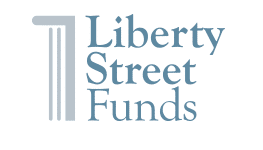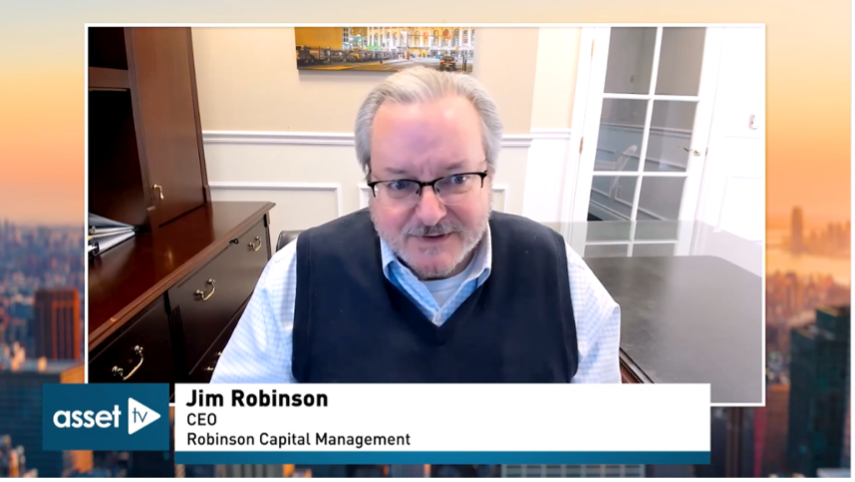Jim Robinson, CEO of Robinson Capital Management, sits down with Asset TV as one of three featured experts on Asset TV’s Fixed Income Masterclass.
During this discussion, Jim, and the other panelists look back on the unprecedented year that was 2022 and discuss the current state of the fixed income market.
They cover various topics and outlooks within fixed income, including high yield vs. low yield bonds, updating investment strategies, and where they are seeing the best potential opportunities in the space in 2023.
Watch the video by clicking the image below:
Founded in 2012, Robinson Capital Management employs both fundamental and tactical techniques to select and manage the two funds they sub-advise. The company specializes in traditional and alternative fixed income investing strategies. These approaches often employ closed-end mutual funds that offer the potential to generate higher cash flow yields while providing low correlations with stock and bond markets.
Risks and Other Disclosures
Before investing you should carefully consider the Fund’s investment objectives, risks, charges and expenses. This and other information is in the prospectus and summary prospectus, a copy of which may be obtained on this website or by calling (800) 207-7108. Please read the prospectus or summary prospectus carefully before you invest.
RISKS AND OTHER DISCLOSURES:
An investment in the Fund is subject to risk, including the possible loss of principal amount invested and including, but not limited to, the following risks: Market Risk: the market price of a security may decline, sometimes rapidly or unpredictably, due to general market conditions that are not specifically related to a particular issuer, company, or asset class. Fixed income/interest rate Risk: A rise in interest rates could negatively impact the value of the Fund’s shares. Generally, fixed income securities decrease in value if interest rates rise, and increase in value if interest rates fall, with longer-term securities being more sensitive than shorter-term securities. Municipal Bond Risk: The underlying funds in which the Fund invests will invest primarily in municipal bonds. Litigation, legislation or other political events, local business or economic conditions or the bankruptcy of the issuer could have a significant effect on the ability of an issuer of municipal bonds to make payments of principal and/or interest. Changes related to taxation, legislation or the rights of municipal security holders can significantly affect municipal bonds and may cause them to decline in value. Closed-end fund (CEF), exchange-traded fund (ETF) and open-end fund (Mutual Fund) Risk: The Fund’s investments in CEFs, ETFs and Mutual Funds (“underlying funds”) are subject to various risks, including reliance on management’s ability to manage the underlying fund’s portfolio, risks associated with the fund’s portfolio, risks associated with the underlying securities held by the underlying fund, fluctuation in the market value of the underlying fund’s shares, and the Fund bearing a pro rata share of the fees and expenses of each underlying fund in which the Fund invests. U.S. Treasury Futures Contracts Hedge Risk: To the extent the Fund holds short positions in U.S. Treasury futures contracts, should market conditions cause U.S. Treasury prices to rise, the Fund’s portfolio could experience a loss; and should U.S. Treasury prices rise at the same time municipal bond prices fall, these losses may be greater than if the hedging strategy not been in place. COVID-19 Related Market Events. The outbreak of COVID-19 has negatively affected the worldwide economy, individual countries, individual companies and the market in general. The future impact of COVID-19 is currently unknown, and it may exacerbate other risks that apply to the Fund. Management and Strategy: the evaluation and selection of the Fund’s investments depend on the judgment of the Fund’s Sub-Advisor about the quality, relative yield, value or market trends affecting a particular security, industry, sector or region, which may prove to be incorrect. Leveraging Risk: The underlying funds in which the Fund will invest may be leveraged as a result of borrowing or other investment techniques. As a result, the Fund may be exposed indirectly to leverage, and may expose the Fund to higher volatility and possible diminishment of long-term returns. In addition, future regulations may hinder or restrict an underlying fund’s ability to maintain leverage; which in turn may reduce the total return and tax exempt income generated by the underlying funds and may cause a reduction in the value of the Fund’s shares. Tax Risk: There is no guarantee that the Fund’s income will be exempt from regular federal income taxes. Events occurring after the date of issuance of a municipal bond or after an underlying fund’s acquisition of a municipal bond may result in a determination that interest on that bond is subject to federal income tax. The Fund’s opportunistic trading strategies may also result in a portion of the Fund’s distributions to shareholders being characterized as capital gains. Portfolio Turnover Risk: The Fund’s turnover rate may be high. A high turnover rate may lead to higher transaction costs, a greater number of taxable transactions, and negatively affect the Fund’s performance. High Yield (“Junk”) Bond Risk: The ETFs and Mutual Funds in which the Fund invests may invest in high yield (“junk”) bonds which involve greater risks of default, downgrade, or price declines and are more volatile and tend to be less liquid than investment-grade securities. Liquidity Risk: There can be no guarantee that an active market in shares of CEFs and ETFs held by the Fund will exist. The Fund may not be able to sell some or all of the investments it holds due to a lack of demand in the marketplace or other factors such as market turmoil, or if the Fund is forced to sell an asset to meet redemption requests, it may only be able to sell those investments at a loss. Derivatives Risk: The Fund and the underlying funds may use futures contracts, options, swap agreements, and/or sell securities short. Futures contracts may cause the value of the Fund’s shares to be more volatile and expose the Fund to leverage and tracking risks; the Fund may not fully benefit from or may lose money on option or shorting strategies; swaps may be leveraged, are subject to counterparty risk and may be difficult to value or liquidate.
Diversification does not assure a profit or protect against a loss.
Distributed by Foreside Fund Services, LLC.
The views expressed in this material reflect those of the Fund’s Sub-Advisor as of the date this is written and may not reflect its views on the date this material is first published or anytime thereafter. These views are intended to assist shareholders in understanding the Fund’s investment methodology and do not constitute investment advice. This material may contain discussions about investments that may or may not be held by the Fund. All current and future holdings are subject to risk and to change. To the extent this report contains forward looking statements, unforeseen circumstances may cause actual results to differ materially from the views expressed as of the date this was written.
Liberty Street Advisors, Inc. is the advisor to the Fund. The Fund is part of the Liberty Street family of funds within the Investment Managers Series Trust.


